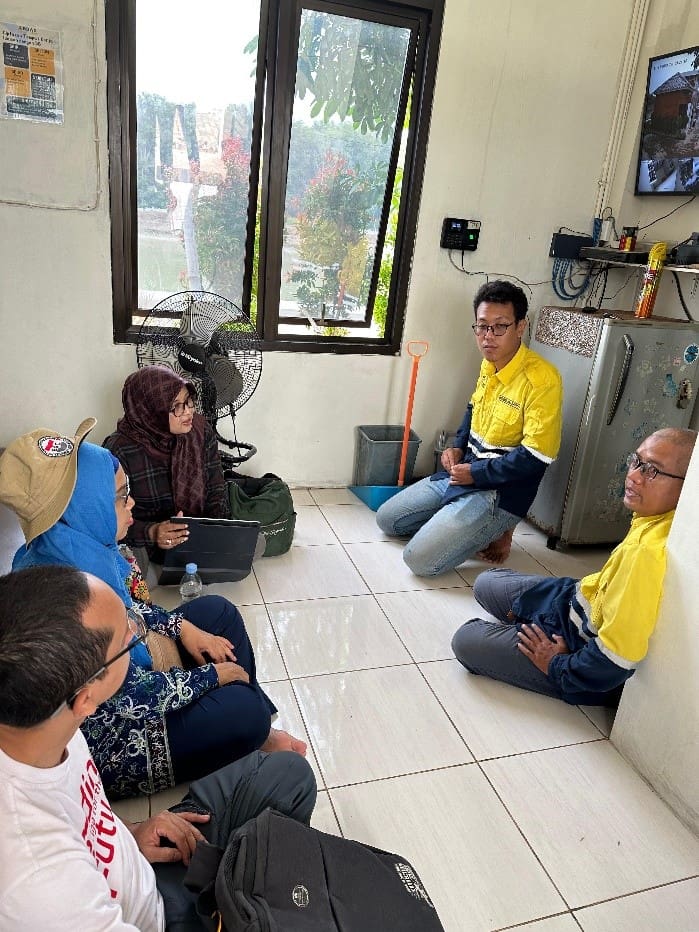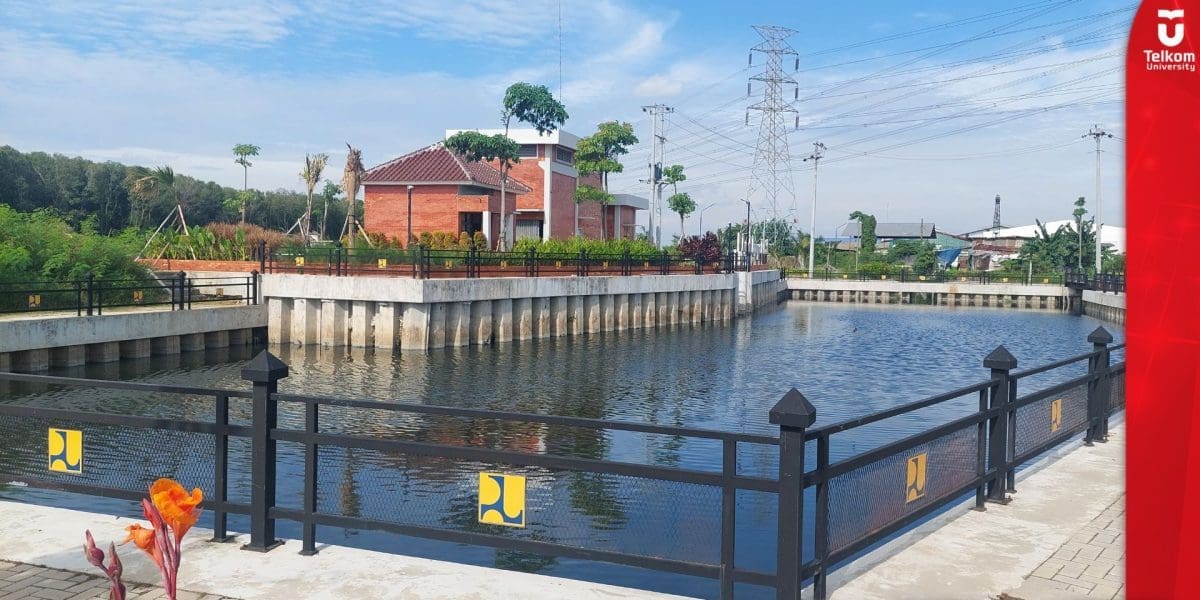Telkom University – As part of an educational institution, in addition to producing quality graduates, Telkom University has a responsibility in achieving SDGs. To achieve these Sustainable Development Goals, Telkom University in collaboration with the University of Wollongong Australia created a Tidal Flood Monitoring and Mitigation Management System called ‘Tide’Eye’. Tide-Eye is an Artificial Intelligence (AI) based system that combines drone technology and internet of things infrastructure. Tide-Eye can transform water level monitoring and flood activities digitally and is implemented in three cities in Central Java, namely Pekalongan, Semarang and Demak. This program is a concrete manifestation of Telkom University in achieving SDG 5 Gender Equality, SDG 11 Sustainable Cities and Settlements; SDG 13 Climate Change Management; and SDG 17 Partnerships to Achieve Goals.

Rantika Rakhmawati, Head of the Implementation Team for General Planning Affairs of the Pemali Juana River Basin Agency (BBWS), explained that Tide-Eye will enable water infrastructure workers and residents in the three regions to monitor water levels and flood risks in real-time. This information will enable workers to make timely decisions, not only to improve the efficiency of flood mitigation infrastructure and reduce the impact of flooding, but also to prevent flooding before it occurs.
“The flooding poses a major threat and disruption to the activities of some residents of Central Java, with far-reaching impacts on society, infrastructure and the environment. Located in low-lying coastal areas, the cities of Pekalongan, Demak and Semarang are vulnerable to sea level rise, flooding and extreme weather events,” he explained.
Residents of Pekalongan, Semarang and Demak experienced adverse health impacts from the floods with an increase in moisture- and fungus-related diseases such as diarrhea, dengue fever, athlete’s foot and skin and lung complaints. The floods also contributed to the quality of groundwater, which is widely used as a source of drinking water and other needs by residents in the region.
In addition, flooding also adversely affects the economy and agriculture in the region. To mitigate the impact of flooding, the Indonesian government has built seawalls, reservoirs and large pumping stations designed to pump water through the seawalls when tidal levels in the reservoirs exceed a certain threshold. Pump control is currently still done manually. The lack of continuous sea level monitoring and automation in water pump control results in poor accuracy, untimeliness and low efficiency in flood response and damage mitigation.
Rantika also said the project will develop leading-edge, fit for purpose, scalable and affordable solutions for flood monitoring. This will help reduce flood losses, increase incomes, sustain and improve the livelihoods of many local communities. The project will also involve the role of women in participation and decision-making.
The role of women in flood mitigation implementation and decision-making is critical to ensure the sustainability and effectiveness of mitigation efforts. Gender equality and women’s roles in flood mitigation are complex and must be carefully considered within the cultural and social context of the community. Women’s role in addressing flood impacts must be recognized, respected and empowered to achieve community sustainability and resilience.
Women’s participation can be a valuable source of information for planning flood mitigation strategies. Women should be actively involved in the process of planning and implementing flood mitigation projects. This includes participation in community meetings, planning discussions and engagement in field activities.
“The program will include training for staff of the Pemali Juana River Basin Authority (BBWS) so that they can fully operate, maintain and replicate the system in other locations in the long term,” he said.
This innovation is an International Research grant from KONEKSI (Collaboration for Knowledge, Innovation and Technology Australia and Indonesia) with a total grant of AUD 350 thousand around RP 3.5 billion. This grant is a collaborative program between the Government of Indonesia and the Department of Foreign Affairs and Trade (DFAT) Australia. The program brings together leading experts in the fields of artificial intelligence (AI), Internet of Things (IoT) and Machine Research UoW Learning and Environmental Engineering from both countries. The combined research team consists of a team led by Asoc. Prof. Dr. Le Chung Tran, and Telkom University Research Team consisting of Dr. Miftadi Sudjai (Chair), Prof. Dr. Aloysius Adya Pramudita, Dr. Asep Suhendi, and Dr. Erna Sri Sugesti along with a team of researchers from the Center for Excellence in Science and Technology (PUI) Intelligent Sensing-IoT College, Telkom University. This research program also involves the Balai Besar Wilayah Sungai (BBWS) Pemali-Juana, Semarang, as the end-beneficiary and authority of the region and PT. Hilmy Anugerah Consulting Engineer as a local partner.
Writer: Sonia Dewi | Editor: Runic Machfiroh | Photo: DCS

